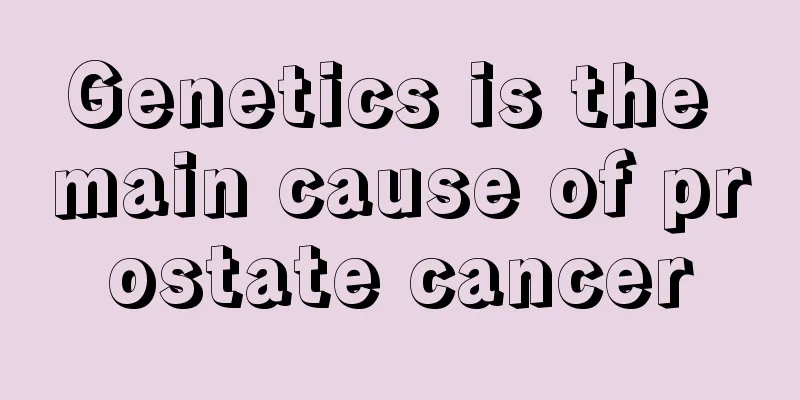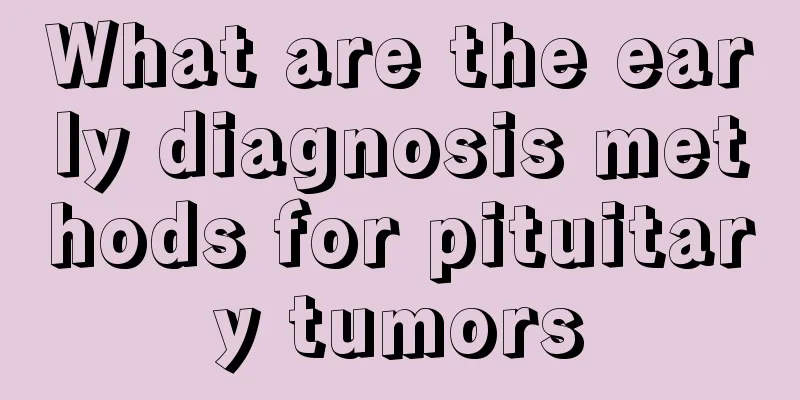Genetics is the main cause of prostate cancer

|
Men are all afraid of prostate diseases, and prostate cancer is a nightmare among nightmares. What causes prostate cancer? In recent years, experts have pointed out that heredity is the main cause of prostate cancer. The following will explain in detail what causes prostate cancer. In recent years, experts from various countries have been committed to the study of the causes of prostate cancer. They found that if a direct relative (brother or father) has prostate cancer, the risk of developing prostate cancer will increase by 1 times. If 2 or more direct relatives have prostate cancer, the relative risk will increase by 5 to 11 times. A subpopulation (about 9%) of the prostate cancer population is "true hereditary prostate cancer", which means that 3 or more relatives have the disease or at least 2 of them have early onset (before the age of 55). By collecting cases and family histories from multiple regions, experts have discovered what causes prostate cancer. Epidemiological studies have found that patients with a positive family history of prostate cancer are diagnosed about 6 to 7 years earlier than those without a family history, but there are no other differences. The probability of prostate cancer being found by biopsy is roughly similar in different parts of the world. This is in stark contrast to the significant differences in the incidence of prostate cancer in different regions, which is highest in the United States and Northern Europe and lowest in Southeast Asia. However, epidemiological studies have found that the incidence rate increases after Japanese immigrants move to Hawaii, and if they immigrate to California, the incidence rate increases significantly and approaches the incidence rate in the mainland United States. In addition, they also conducted another study to investigate the causes of prostate cancer. A meta-analysis included 11 case-control and 10 cohort studies to identify the correlation between tomato intake and the risk of prostate cancer. The results showed that a large amount of tomato consumption reduced the relative risk of prostate cancer to 0.81 (CI0.71-0.92). Other risk factors include low intake of vitamin E, selenium, lignans, and isoflavones. The above studies show that in addition to the endogenous factor of genetics, other exogenous factors can affect the progression from so-called latent prostate cancer to clinical prostate cancer. These factors such as food intake, sexual behavior, alcohol consumption, ultraviolet radiation exposure and occupational exposure are still under discussion as possible causes, but a diet high in animal fat is an important risk factor. Tomatoes contain lycopene, a strong antioxidant, which is currently being widely studied as a possible protective agent against the progression of prostate cancer. In summary, heredity is an important risk factor for prostate cancer, and exogenous factors should not be ignored. The key issue now is that there is not enough evidence to suggest that lifestyle changes (reducing animal fat intake and increasing the intake of fruits, grains, vegetables, and red wine) will reduce the risk of disease. There are some studies to support these claims, and this information can be provided to the families of male prostate cancer patients who come to ask about the impact of diet. |
<<: Is prostate cancer inherited from generation to generation?
>>: Is prostate cancer hereditary?
Recommend
Is esophageal microradiotherapy good?
Esophageal micro-radiofrequency treatment is an e...
The baby shakes his head while sleeping
Sleep is very important for the baby's brain ...
What are the differences between sun spots and melasma
Sun spots and chloasma are both types of spots, a...
Which department should I go to for rheumatoid arthritis
Joint diseases account for a very large proportio...
Do you know the early symptoms of skin cancer?
Early stage skin cancer often presents as erythem...
What are the tips for cleaning kettle scale
Kettle is an electrical appliance that every hous...
Can eggs be washed and put in the refrigerator?
Relatively speaking, eggs can be stored for a lon...
How long should the quadruple therapy be taken
With the development of medicine, more and more d...
Are you at high risk for colon cancer?
The early symptoms of colon cancer are not obviou...
Why can't nasopharyngeal cancer be detected by biopsy
Why can’t nasopharyngeal cancer be detected throu...
How to use a water-proof electric stew pot?
The pot is an indispensable tool in people's ...
What are the folk remedies for advanced lung cancer? Try these six folk remedies for advanced lung cancer
Lung cancer in the late stage has reached a relat...
What are the symptoms of jaundice caused by pancreatic cancer
What are the symptoms of pancreatic cancer jaundi...
Why does my chest hurt and itch?
Chest pain and itching may be caused by breast hy...
I have few bowel movements and feel that my bowel movements are not complete
Nowadays, many people often encounter constipatio...









